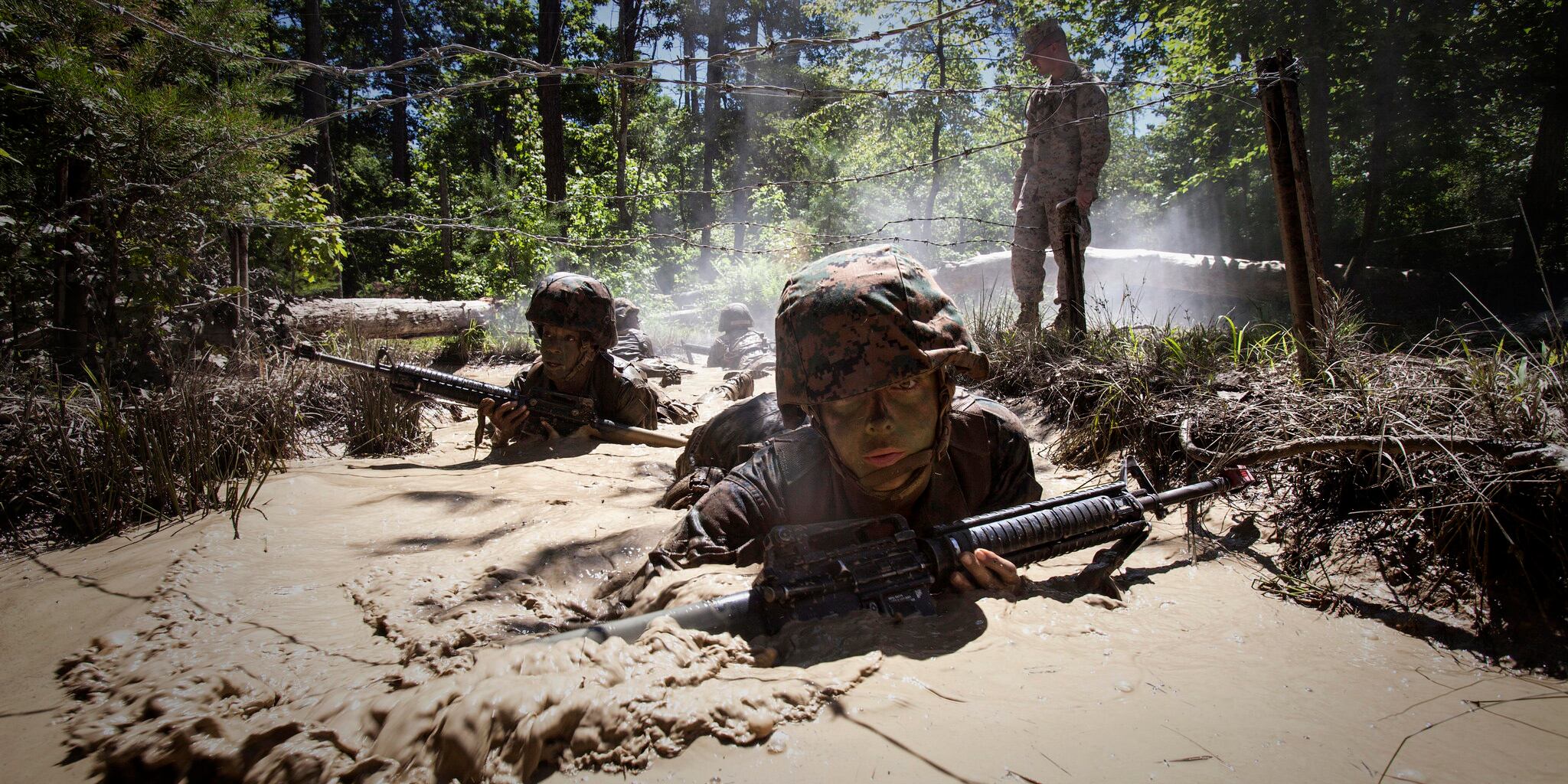Top defense leaders have continuously warned of the variety and veracity of threats near-peer competitors can pose to U.S. forces.
While some might think the denial of friendly communications through signal jamming poses problems, officers in the Marine Corps and Navy don’t.
“The signature management fight is one we’re excited about having because if we go to a completely comms-degraded environment, I win all day long because it’s about training,” Maj. Gen. Eric Smith, Commanding General of 1 Marine Division, said during a panel at the West 2018 conference in San Diego, California, Feb. 6.
“Because if nobody’s talking, I win because I’ll guarantee you the marines that we have are far better trained than the soldiers we will go up against. If they can’t talk and I can’t talk, I win all day long.”
RELATED

Others seconded this notion, alluding to the fact that if U.S. forces are entering a degraded communications environment, both sides will be degraded.
In such an operational environment, “I think that the United States Navy will have the upper hand because of … our concept of command,” Vice Adm. Richard Brown, commander of Naval Surface Forces, said during the same panel.
“We have a concept of command that is second to none and our commanding officers understand the mission, they understand their mission orders, and if we go in to that comm degraded environment, I don’t think you want to go up against one of our commanding officers,” he added.
Mark Pomerleau is a reporter for C4ISRNET, covering information warfare and cyberspace.








